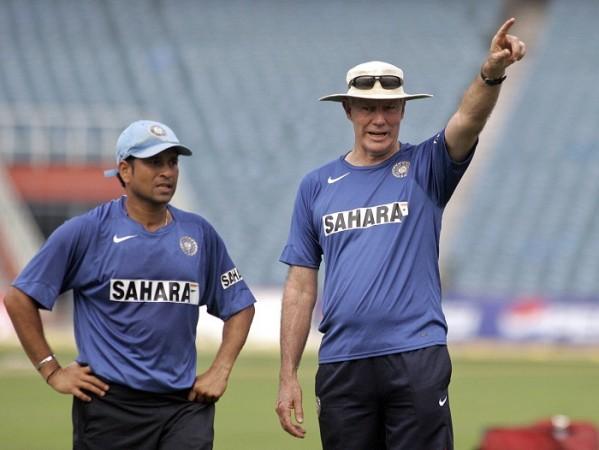
Sachin Tendulkar is not someone who finds it difficult to adapt to a situation, be that on the cricket field or off it. So, when he does find it near impossible to cope with something, you know it must be something serious. And that something serious happened to be Greg Chappell's disastrous spell as India coach between 2005-07.
Tendulkar minced no words over Chappell's influence in his autobiography, which will be out in a few days.
Chappell, according to Sachin, had one major agenda when he took over as India coach, and that was to ease out the senior players, preferably every single one of them.
"Chappell seemed intent on dropping all the older players and in the process damaged the harmony of the side," wrote Tendulkar in his autobiography "Playing it My Way" according to ESPNCricinfo. "On one occasion, he asked VVS Laxman to consider opening the batting.
"Laxman politely turned him down, saying he had tried opening in the first half of his career because he was confused, but now he was settled in the middle order and Greg should consider him as a middle-order batsman.
"Greg's response stunned us all. He told Laxman he should be careful, because making a comeback at 32 might not be easy. In fact, I later found out that Greg had spoken to the BCCI about the need to remove the senior players, no doubt hoping to refresh the team."
Chappell's issues with then captain Sourav Ganguly, who he eventually succeeded in replacing, was a well known fact, but Tendulkar also revealed the Australian had problems with Rahul Dravid, Ganguly's successor to the captaincy throne as well.
"Just months before the World Cup, Chappell had come to see me at home and, to my dismay, suggested that I should take over the captaincy from Rahul Dravid," Tendulkar added.
"Anjali [Sachin's wife], who was sitting with me, was equally shocked to hear him say that 'together, we could control Indian cricket for years', and that he would help me in taking over the reins of the side.
"I was surprised to hear the coach not showing the slightest amount of respect for the captain, with cricket's biggest tournament just months away. He stayed for a couple of hours, trying to convince me, before finally leaving."
India eventually ended up flopping at the 2007 World Cup in the West Indies, making an early exit, and the reaction to that poor performance from the team, when they had reached the final in the previous WC, still rankles the Little Master.
"After we returned to India, the media followed me back home and it hurt when I heard my own people doubting the commitment of the players," wrote Tendulkar. "The media had every right to criticise us for failing, but to say we were not focused on the job was not fair.
"We had failed to fulfil the expectations of the fans, but that did not mean we should be labelled traitors. At times the reaction was surprisingly hostile and some of the players were worried about their safety. Headlines like 'Endulkar' hurt deeply.
"After eighteen years in international cricket, it was tough to see things come to this and retirement crossed my mind. My family and friends like Sanjay Nayak did all they could to cheer me up and after a week I decided to do something about it. I started to do some running, to try to sweat the World Cup out of my head."

















